It’s Up to You!
Dessislava Dimitrova, May 18, 2012
 “It’s up to you”!” These were the final words in the sole direct debate between Boris Tadic and Tomislav Nikolic, who on Sunday are facing a run-off of the presidential elections in Serbia. After the end of the debate, however, I think the voters will have hard times, while making up their minds about who to head their country in the coming four years. According to local analysts, Tadic was the real winner in this duel, as he was more convincing and more persuasive. Was it because I could not watch the duel, just listen to it on the radio, but none of the two candidates could impress me enough to vote for him, if I was to do that on Sunday.
“It’s up to you”!” These were the final words in the sole direct debate between Boris Tadic and Tomislav Nikolic, who on Sunday are facing a run-off of the presidential elections in Serbia. After the end of the debate, however, I think the voters will have hard times, while making up their minds about who to head their country in the coming four years. According to local analysts, Tadic was the real winner in this duel, as he was more convincing and more persuasive. Was it because I could not watch the duel, just listen to it on the radio, but none of the two candidates could impress me enough to vote for him, if I was to do that on Sunday.
I should, however, confess, that Nikolic was right about one thing – his opponent, whom he called "the ex-president", for an hour and half could not shake himself off the shadows of the past, and I still think that a voter, no matter how naive this might sound, needs promises for a brighter future rather than those shadows of the past. Nevertheless, Tadic chose the strategy of reminding what had been done in the country during his two 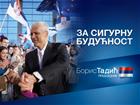 mandates as president and during the period when governments, in which his Democratic party took part, governed the country.
mandates as president and during the period when governments, in which his Democratic party took part, governed the country.
Moreover, he went eight years back to explain what he had found when his first mandate started and that the consequences of his predecessors could still be felt. Nikolic in his turn decided to hit back and in the end the debates turned into mutual accusations between the two candidates, instead of being a generator for new ideas. Those accusations could be heard until the very end of the duel but in his final address Nikolic went even further, by calling upon the voters “to punish Tadic for the lies he had told”. He straightforwardly said that Serbia’s citizens were hostages of “Tadic, the tycoons and his environment” and that “they should take their lives into their own hands.”
Tadic himself took another line in his closing remarks, saying only that Serbia’s path was toward the European Union, investments and education. During the debates he explained that the European Union was Serbia’s only alternative, as it guarantees investments, stability and peace, but he pointed out that the country’s membership should not be only a formal process, but that this road should be taken because of the national interest. As regards Serbia’s foreign policy, he summed up that it should be before all predictable, so that it could guarantee peace, and as a major threat he pointed terrorism.
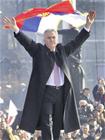 Nikolic in turn said he was also in favour of the country’s pro-European future and even reminded that he was once a member of an anti-European party but for more than three years he lead a new party, which backed Serbia’s EU membership and that apparently Tadic was afraid of the Progressive party, which had secured more seats in Parliament then the Democratic party. Nikolic continued to blame Tadic that he only sought cooperation with Russia during the elections in 2008, while his own course, as a future president, would be “cooperation with both the East and the West”. Nikolic’s stand, as far as such could be found during the debates, was that most of all the economic model of the country had to be changed and then it could be used as a basis both for the internal and the foreign policy.
Nikolic in turn said he was also in favour of the country’s pro-European future and even reminded that he was once a member of an anti-European party but for more than three years he lead a new party, which backed Serbia’s EU membership and that apparently Tadic was afraid of the Progressive party, which had secured more seats in Parliament then the Democratic party. Nikolic continued to blame Tadic that he only sought cooperation with Russia during the elections in 2008, while his own course, as a future president, would be “cooperation with both the East and the West”. Nikolic’s stand, as far as such could be found during the debates, was that most of all the economic model of the country had to be changed and then it could be used as a basis both for the internal and the foreign policy.
The rest of the exchange of accusations came on the line of the talks, which both of them as leaders of the parties that gained the most seats in Parliament are having with other parties as for the second round of the elections so for the new government that should be formed. Under the latest post-elections scenario, the cabinet would include members of the Tadic-led coalition and the one led by the leader of the Socialists, Ivica Dacic, who have already agreed on that, but the prime minister and the seats in the cabinet are to be decided after the second round of the presidential elections.
It is expected the Liberal Democrats of Cedomir Jovanovic to join them, which triggered Nikolic’s accusations that Tadic was ready to connect with a party that is for Kosovo’s recognition. Tadic, however, replied that he would not accept the 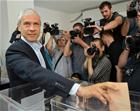 independence of the former Serbian province and that he would continue his work on the four points plan he had already presented. According to Tadic, however, it was Nikolic who was avoiding to talk about the EU, as just a few days ago he received the support of former PM Vojislav Kostunica, who, as a presidential candidate, called for neutrality, including giving up the country’s EU membership.
independence of the former Serbian province and that he would continue his work on the four points plan he had already presented. According to Tadic, however, it was Nikolic who was avoiding to talk about the EU, as just a few days ago he received the support of former PM Vojislav Kostunica, who, as a presidential candidate, called for neutrality, including giving up the country’s EU membership.
In his words, by signing an accord with Kostunica, under which Kostunica’s party would back Nikolic in the run-off, his opponent got an ally that was against the EU, which was a dangerous policy and a bad signal for the rest of the world. Nikolic’s response was that Tadic’s candidacy had not received direct support neither by Washington, nor by Brussels or Moscow.
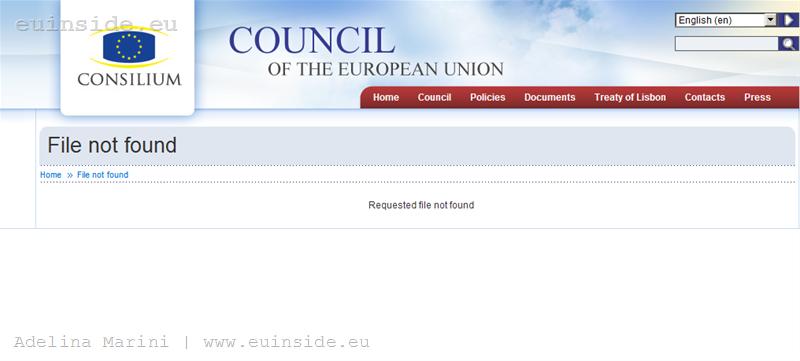 | © euinside
| © euinside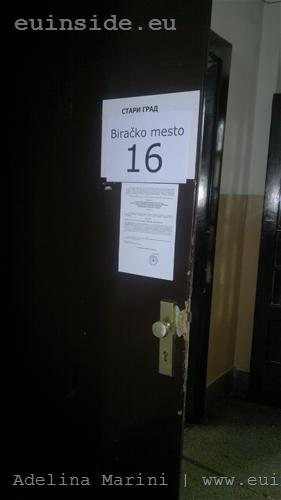 | © euinside
| © euinside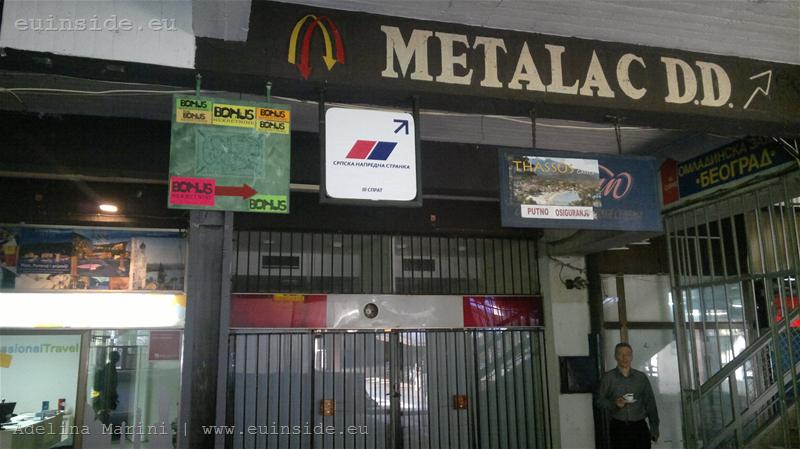 | © euinside
| © euinside